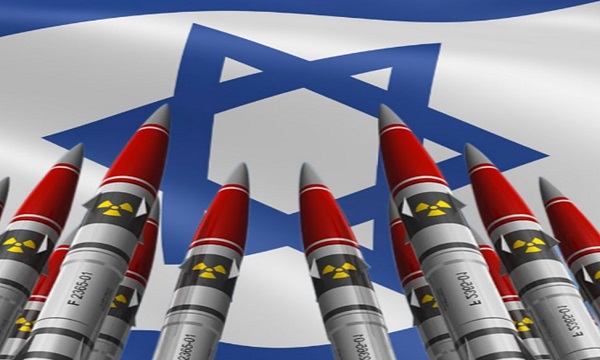Iran Warns IAEA of Zionist regime’s Clandestine N. Program, Calls for Tel Aviv’s Instant Endorsement of NPT
 Iran’s Ambassador and Permanent Representative to the Vienna-based International Organizations Kazzem Qaribabadi, in his to the Director-General of the International Atomic Energy Agency Rafael Grossi, warned him over the Israeli secret nuclear weapons program, stressing that such activities pose a serious threat to regional and global security and stability.
Iran’s Ambassador and Permanent Representative to the Vienna-based International Organizations Kazzem Qaribabadi, in his to the Director-General of the International Atomic Energy Agency Rafael Grossi, warned him over the Israeli secret nuclear weapons program, stressing that such activities pose a serious threat to regional and global security and stability.
He emphasized the necessity of Zionist regime’s prompt and unconditional joining to the NPT and giving full access of its nuclear facilities to the IAEA.
The envoy urged the UN Nuclear Watchdog to draw the attention of all NPT members to the threats posed by Tel Aviv as a result of its nuclear weapons and request them to support the issue at the meetings of the IAEA Board of Governors and the General Conference as well as the NPT tenth Review Conference.
“All in the West Asian region, except the Israeli regime, are parties to the NPT,” Qaribabadi said, adding that the development of a clandestine nuclear weapons program by Israel continues to pose a serious threat not only to the security and stability of the region and the world but also to the effectiveness and efficiency of the NPT and the Agency's safeguards regime.
“It should be rejected promptly and without any prejudices. Needless to say that Israel is not also a party to any of other major treaties governing weapons of mass destruction (WMD) non-proliferation,” he went on to warn.
Qaribabadi also pointed to the NPT Resolution on the Middle East in 1995, saying, “The Review and Extension Conference of the Parties to the NPT which was held in May 1995 adopted a package of decisions in which the Resolution on the Middle East was an integral part of the decision to an indefinite extension of the NPT.”
The Iranian envoy further said that such resolution reflects the concerns of the States Parties to the Treaty about the dangerous situation in West Asia resulting from the presence in the region of nuclear activities not subject to the IAEA safeguards, which puts regional and international peace and security at risk.
He also noted that the Zionist regime kept developing an advanced nuclear weapons program despite the resolutions adopted by the IAEA General Conference from 1987 to 2010.
Qaribabadi requested the IAEA chief to take necessary measures to address the mentioned concerns and subsequently inform the member states of the results.
in relevant remarks in November last year,Iranian Ambassador and Permanent Representative to the UN Majid Takht Ravanchi called on the International Atomic Energy Agency (IAEA) to monitor the nuclear programs of both Saudi Arabia and Israel.
Takht Ravanchi made the remarks at a virtual meeting of the UN General Assembly on Wednesday November 11 that endorsed the IAEA’s annual report.
He said it is “of utmost importance” for the IAEA to consider available information on Riyadh’s nuclear activities, adding, “If Saudi Arabia is seeking a peaceful nuclear program, it should act in a very transparent manner and allow the agency’s inspectors to verify its activities.”
Additionally, he noted, the IAEA needs to take “an unbiased and professional approach” toward Israel, which has refused to adhere to the agency’s safeguards, is not a party to the Nuclear Non-proliferation Treaty (NPT) and is widely believed to possess nuclear weapons.
Referring to Iran’s cooperation with the IAEA, Takht-Ravanchi said Iran alone receives 22 percent of all the agency’s inspections even during the coronavirus pandemic.
“Iran and the agency have agreed to work in good faith to resolve these safeguards-related questions,” he stressed.
